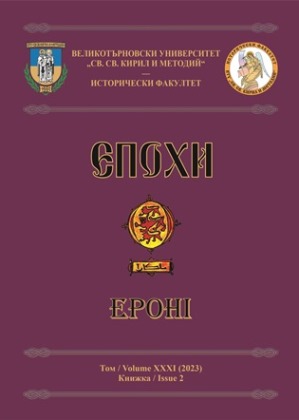Събранието за избор на княз (1879 г.). Състав и сформиране
The Assembly for the Election of a Prince (1879): Composition and Formation
Author(s): Milko PalangurskiSubject(s): Politics / Political Sciences, Politics, History, Political history, Modern Age, Electoral systems, 19th Century
Published by: Великотърновски университет „Св. св. Кирил и Методий”
Keywords: Treaty of Berlin; assembly to elect a prince; Prince Alexander of Battenberg; elections; Members of Parliament
Summary/Abstract: The decisions of the Berlin Treaty stipulated that, upon the formation of the new Bulgarian state, the “leaders” of the nation would be convened to draft the Organic Statute of the country. In early 1879, they began their activity, and one of their tasks was to determine the form and method of electing the first Bulgarian ruler in accordance with the peace treaty. The choice was extremely important, because according to international law, this marked the beginning of the Principality’s self-government. It was decided that the special assembly for electing a prince would be composed only of representatives elected by the people, literally following the spirit of the Treaty of Berlin. Under the control of the Russian occupying power, 244 people’s representatives were elected, who were from different social groups. As with the composition of the assembly of notables, they represented the most prominent persons in a national and regional sense. On 17 April 1879, 241 of them accepted, with acclamations, Prince Alexander of Battenberg as the Bulgarian ruler, with which the independent functioning of the country and the construction of its constitutional institutions began after a 483-year break.
Journal: Епохи
- Issue Year: XXXI/2023
- Issue No: 2
- Page Range: 319-345
- Page Count: 27
- Language: English, Bulgarian

